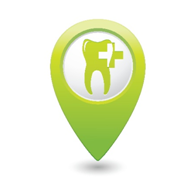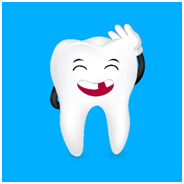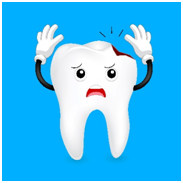In the lead up to Christmas Maidstone Dental & Implant Centre will be open until Friday 22 December. If you experience a dental emergency in the run up to Christmas be sure to ring the surgery prior to 10am as we have a number of emergency appointments available each day so we will endeavour to see you as quickly as possible to ensure you are pain free and able to enjoy your Christmas dinner.
Should you experience a problem during the festive period please ring the surgery on 01622 682 029. There will be a message on the answerphone giving details of how to access emergency dental treatment.
You may require urgent treatment if you have:
A toothache or swelling
This is the most common reason patients seek emergency dental treatment and there are a number of different causes.
Pain is often caused by an infection within the root of the tooth. The tooth may need to be drained to remove the infection and the dentist may also prescribe you antibiotics.
The dentist will advise you to complete the course of antibiotics and then come in for a review appointment. It is very important that you attend this second appointment because although the pain will reduce as the infection clears it is important to find a permanent solution, so the infection does not reoccur. It may be necessary to have a filling, root canal treatment or if it is not possible to save the tooth it will need to be extracted.
Trauma to the face, mouth of teeth following an injury or accident
If you experience a blow or direct force to your face, mouth, or teeth there is the potential for damage to occur. If you notice that your teeth are loose or have been chipped or broken you will need to attend the dentist for a full assessment to be made.
A permanent tooth knocked out
If a permanent tooth is knocked out, wherever possible replace the tooth into the socket immediately and seek dental treatment. It may be possible for the tooth to be saved. If there is a risk of the tooth being swallowed for example if the patient is a young child, keep the tooth in a container of body temperature milk and seek dental treatment immediately.
Bleeding following an extraction that does not stop or a dry socket
Following a tooth extraction there is the potential for the socket to continue to bleed if a clot does not form. This often happens in patients who are taking blood thinning medication such as warfarin and aspirin. If this is the case the dentist may put sutures in place to hold the socket closed and allow the gums more time to heal. These will dissolve away naturally within a week to ten days.
It is also possible for infection to get into the socket if the blood does not clot properly, this is known as a dry socket and can be very painful. You may also notice a bad smell emanating from the area. This can be treated by using a warm saline solution to clean the area and then packing the socket with an antibacterial dressing. The site will need to be cleaned regularly to reduce the chance of any further infection.
A broken tooth or lost filling
A broken tooth or lost filling may cause pain because of the sharp tooth edges left behind and because the underlying dentine may be exposed.
There are a number of treatment options then available, the tooth may be re-filled, crowned, have root canal treatment or if the prognosis is poor it may need to be extracted. The dentist will be able to discuss all the possible options with you before you make the decision on how you would like to proceed.
All the team at Maidstone Dental & Implant Centre would like to wish our patients a happy and trouble free Christmas, but should you have any issues during the festive period do not hesitate to call the surgery on 01622 682029.








